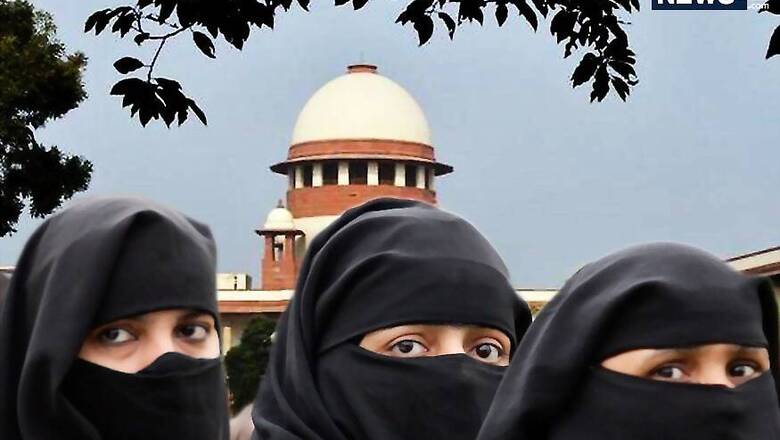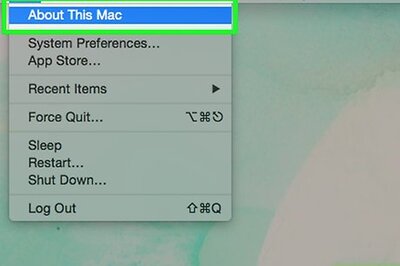
views
New Delhi: After the Supreme Court struck down instant triple talaq, a plea in the court now seeks ban on nikah halala and polygamy as violative of Constitution and claims they “are not a part of religion.”
BJP leader and Supreme Court lawyer, Ashwini Upadhyay, who was also an intervener in the triple talaq case, has approached the apex court with this plea contending that “nikah halala is rape under Section 375 of the IPC and polygamy is an offence under Section 494 of the IPC."
During the triple talaq hearing in May 2017, then Chief Justice of India, JS Khehar, had informed the litigants that the court "would not look into the issue of polygamy and nikah halala and would remain only focussed on instant talaq."
However, the petitioner has now placed reliance on the same verdict delivered by the five-judge bench to contend that SC itself has ruled "Section 2 of the Muslim Personal Law (Shariat) Application Act,1937, is arbitrary and violative of Articles 14, 15 and 21 of the Constitution, insofar as it seeks to recognise practice of triple talaq or talaq-ul-biddat."
Upadhyay has justified a ban on these two practices as personal law remains subservient to the Constitution and that India does not need "another personal law."
"Constitution has primacy over Common Law and Common Law has primacy over the Personal Law. Thus, India doesn’t need another personal law on talaq-halala-polygamy. Nikah halala and polygamy is unconstitutional and violative of Articles 14, 15 and 21of the Constitution," reads the plea.
The matter, which is set to be heard by a CJI-led bench on March 16, has also made an appeal to implement the Uniform Civil Code and has sought directions to the law commission to look into the matter.
Nikah halala is a practice where once a Muslim woman has been divorced, her husband is not permitted to take her back even if he had pronounced talaq under influence of any intoxicant, unless his wife undergoes nikah halala, which involves her marriage with another man, who subsequently divorces her so that her previous husband can re-marry her.
Stating that common law has primacy over personal laws, Upadhyay has urged the court to declare the impugned practices as arbitrary and illegal.
"The laws dealing with marriage and succession are not a part of religion, law has to change with time, and international covenants and treaties could be referred to examine validity and reasonableness of a provision," says the petitioner.
However, post the triple talaq verdict by the Supreme Court, the All India Muslim Personal Law Board had expressed satisfaction on the fact that "the SC has granted sanctity to the Muslim personal law" and has only struck down instant divorce as it was not a part of Islamic law derived from the Quran.
But the plea has also attacked the AIMPLB and it has urged the court to curb the "parallel court" which is prevalent among a section of the Muslim community.
Furthermore, the plea which also demands a UCC has highlighted Constitutional debates where it has been stated that bringing a common code would not be a tyranny on the minority community.
"Anybody who raises an objection to implementation of the Article 44 becomes guilty of violation of the Preamble, Article 44 as well as Article 51A of the Constitution and any Government, which yields to such demands, even after 68 years of the adoption of the Constitution, would be not only liable to the charge of throwing the Constitution to the winds but also of being a party to the violation of Article 44 and Article 51A specifically," reads the plea.

















Comments
0 comment